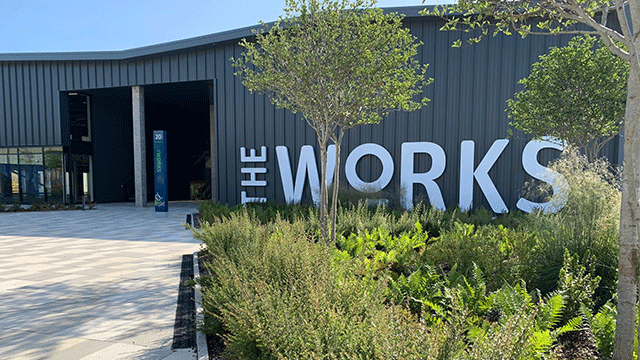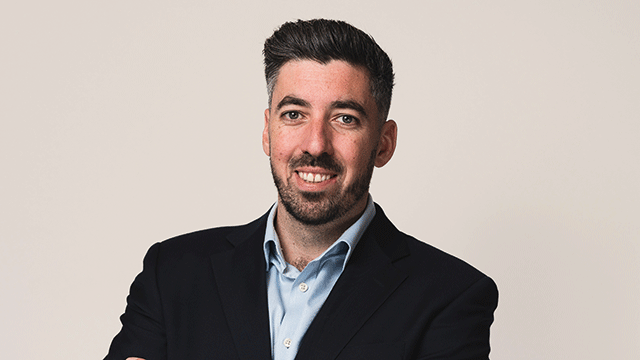Every July sees the election of a new president of the RICS. This year’s incumbent is Michael Clark, a general practice surveyor from Sussex. On his second day as president Mr Clark talked to Janice McKenzie about his aims for the coming year, among which is greater participation by the branches and an end to the dispute with the Office of Fair Trading.
Michael Clark’s first job as president is to oversee the settlement of the continuing debate between the RICS and the Office of Fair Trading.
The RICS is registered under the Restrictive Trade Practices legislation. The institution failed in its appeal to escape the clutches of the OFT in February 1986, as we reported on March 8 last year, but now, following consultation with the Government watchdog, a solution to the RICS/OFT dilemma has been worked out.
Proposed changes to RICS rules are to be put to the institution’s membership. If approved chartered surveyors will for the first time be allowed to invite instructions for professional work by letter.
However, the letter must point out that if the petitioning firm is hired and there is already a chartered surveyor instructed, the client could be liable for suitable payments to both parties. In addition, the petitioner would have to make sure that the instructions to the first firm are ended before he starts work.
If this and other changes are accepted the 11-year dispute will be settled.
“The end to the dispute is important,” says Michael Clark. “It has been a long, long trail, but I don’t regret a year of it. I gave evidence in the beginning, in 1976, and there hasn’t been a let-up since.
Changing attitudes
“Attitudes have changed and not just because of Big Bang. Ten years ago, for example, the relaxation of limited liability would not have been acceptable to the membership. I am fairly confident that when the new changes are put to the membership, they will be accepted.”
Like his predecessor, Donald Troup, Mr Clark is keen to attract the brightest candidates to the profession. “I would like to see it made simpler for degree holders of non-related disciplines to come into the profession,” he declares. “They are, by definition, bright people. They’ve got to get the basic grounding in the profession and, once they’ve got that, they’ve got something to build on.”
Michael Clark sees such non-cognate degree holders as future managers. He commented: “We [chartered surveyors] are not at our strongest in management. You can’t teach management at undergraduate level, it can only come with experience. It is right that chartered surveyors should be managing their own firms. Once they get established they can sort out who goes to business school.”
Surveyors at the hub
The new RICS president is saddened by the small number of chartered surveyors on the main boards of large organisations, other than property companies. “You see accountants and solicitors on main boards, but no surveyors. The profession is perceived to be solely property based. The type of company I am thinking about has enormous property assets but no chartered surveyors at board level.
“I would like to see more chartered surveyors at the hub of things so that property advice is given at first hand. It is those sort of people that I want to attract.”
Michael Clark welcomes the sweeping away of the aura surrounding the professions, including chartered surveying.
“The professions are now being seen as businesses,” he argues. “They have been cocooned in mystique and a lot of this is being swept away — and not before time.
“We’ve got to show that we are retaining the best of the profession and be very much better organised to face a competitive world. In the past the profession has been protected against competition — but that is no longer the case, which in itself will attract the sort of people I want to see.
“We have to show them that the sky’s the limit.”
Mr Clark sees the recent changes in the profession, such as the flotation of Debenham Tewson & Chinnocks, and Pepper Angliss & Yarwood merging with United Trust & Credit, as a pent-up desire to end restrictions and join in with the changes brought about by the deregulation of the Stock Exchange.
“As more firms are adopting a higher profile we shall find each one adopting its own route to participation,” he comments. “There are equally those who will carry on as they are now.
“We are now much more aware of what the clients want rather than what we want to provide. There is a much greater awareness and sharpness about it all.”
Michael Clark intends to “lead from the front” in his year as president. He says he is a countryman at heart “more at home in the country and High Street than in the city”. Having been born in Sussex and worked in the family firm all his life. He aims to get round to all the branches in Great Britain before his year is up.
He said: “If I can achieve anything, I would like to go all around the country. I am aiming to spend as much time as possible in the branches, meeting members and potential clients and telling the latter just what a chartered surveyor does. Also, I want to emphasise the enormous breadth of service a chartered surveyor can give. We have got a long way to go in informing people what a chartered surveyor is.
“We haven’t totally told everyone — we do it at a distance, from London. I am anxious to shift the emphasis — it worries me that members feel distant from the leadership. As a start, I am going to take a General Council meeting to Manchester. And our annual conference this year is to be held at Gleneagles in Scotland.”
The main emphasis of his term of office will be involving as many members as possible in RICS affairs.
Broader experience
“For far too long a limited number of people have done a great deal of the work. There is so much talent and practical experience out there. I want to bring much broader views and experience into working parties. This is not just lip service — I want to eliminate the feeling that there is distance between members and the headquarters in London.”
Finally, Michael Clark would also like to see chartered surveyors taking themselves a little less seriously. He concluded: “Professional life should be enjoyable. I’ve got a wife who is a participator and I hope that this will be a ‘Mr and Mrs President’ year. The social side is neglected — we, as a profession, are a bit chauvinistic, so I am writing to the branches and suggesting that wives be included in social functions.”










